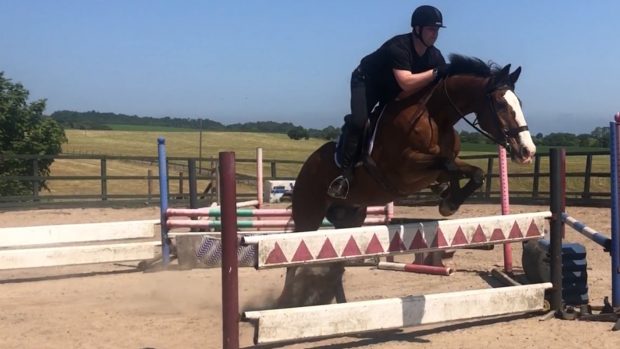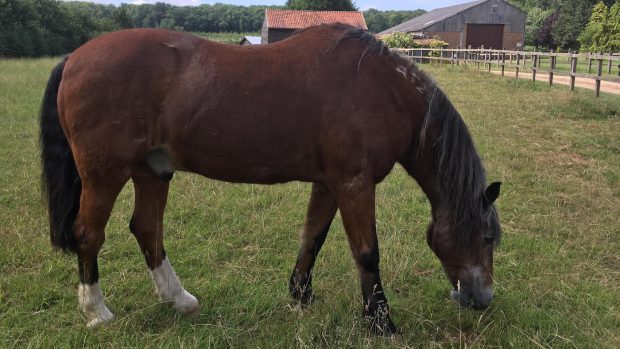Expert advice on helping equines cope with the twilight years
Horses are living longer than they used to, but, warns Karen Coumbe MRCVS, care is just as important as it is with youngsters.
The average lifespan of a horse is described as between 22 and 24 years.
A horse is thought to mature rapidly up to the age of two, when it is said to be the same as an 18-year-old human.
Each further year of a horse’s life is said, in biological terms, to equal about three years of human life.
This means a 15-year-old horse is equivalent to a 56-year-old person, while a 26-year-old pony would be the same as a human of nearly 90.
Older horses who arefit and well do not always need special feed or treatment, unless they have a health or management problem – nor do they need to be retired from work simply because they are veterans. It may be necessary to scale down their activity as they age,but they can still perform well and enjoy what they do.
Good management is vital for all horses, but veterans need special attention in certain areas.
Dental care
This is particularly important for the older horse, as all abnormalities of dental wear become worse with age. As the teeth deteriorate, horses cannot chew their food, so will find digestion of forage more difficult.
The need for special feed can be reduced if the teeth are checked properly twice a year to correct as many problems as possible.
Failure to chew and digest the food properly can cause weight loss and colic. Frequently, such problems are blamed on the teeth in the older horse, when something more serious may be the cause of a failure to thrive.
Foot care
Even if an old pony does nothing and is turned out in a field with no shoes on, the farrier still needs see him regularly to trim his feet.
Old ponies are prone to laminitis, and this is more likely to happen if their feet are not looked after.
Equally, old horses often tend to stumble and the farrier’s careful trimming and balancing of the foot can improve this.
Body condition
Older horses may be more prone to losing weight and less able to regain any weight that they have lost.
Appropriate feeding is important, but a veteran who is doing well may not justify special rations.
It is important to ensure they do not become overweight, since this will make any arthritis or other age-associated lameness worse.
Older horses and ponies seem more susceptible to the cold, which, in turn, will make them lose weight, so a decent rug or bringing them in more in winter may help.
Older horses are also more likely to be bullied by their companions, so it is important to make sure they receive their fair share of feed.
Parasite control
Regular worming is still important in older horses, along with other wormcontrol methods, such as clearing droppings from the field.




